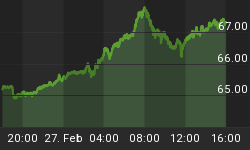Economists respond too readily to the market. There is a huge demand for "point" forecasts about what will happen next year and economists supply them. The result is a waste of effort, which deflects attention from sensible forecasts.
Britain's housing market is a fine example. We know it's going to burst, but we don't know when. This is a general truth about markets. If their peaks could be forecast, investors could profit from the knowledge. Just as twenty pound notes don't lie around without being picked up, investors don't fail to make easy money when they can.
All sensible people knew that Wall Street was a bubble, although they couldn't time its collapse. Markets have a major impact on economies. Since we can't time the former, we can't time the latter.
Our ignorance is not just about timing, it's also about the speed of the decline. But this can be less important than it seems. It is the rise in house prices which is keeping the UK economy going. When this stops, even if there is no great collapse, the savings rate will rise, because home owners won't be able to keep up the giddy pace of "equity withdrawal".
A rise in household savings will be bad news for UK company profits. This is true the world over, which is a good reason to be worried about US profits, once household savings start to pick up there.
In any economy, savings must equal investment. Realising the importance of this identity was probably Keynes's key insight. This means that if household savings go up there must either be an equal rise in investment, or a fall in savings somewhere else in the economy.
When household savings rise, consumption falls. So there is almost never a compensating rise in investment. Retained profits are one form of savings and the most volatile, so when household savings rise, it is profits which nearly always take the hit.
Leon Levy, described by Forbes Magazine as one of the legendary investors of his generation, explains in his recently published book "The Perils of Greed, Mysteries of the Market" why he remains bearish on Wall Street. "When the savings rate rises, my father observed, corporate profits fall." He estimates that with each 1% rise in savings, profits will be cut by 11%.
Household savings are not the only things that affect profits. Their importance lies in their leverage, as Leon Levy's comments show. Personal incomes are such a large part of GDP that changes in the savings rate have a big impact on smaller bits, such as profits.
Until the housing market stops rising, the outlook for UK profits is unclear. The budget deficit is rising sharply, which is very helpful. But this could be offset by further declines in investment or rises in the current account deficit. If profits matter for the market, the outlook is poor, but the timing is as uncertain as the housing market.
If markets were rational, the current level of profits wouldn't matter very much, as it makes very little difference to the value of companies in aggregate. But markets aren't rational and we shouldn't expect them to be. When profits fall they spring back again afterwards. But the recovery is much less sure for individual companies than for the corporate sector as a whole.
In practice it is likely that profits will matter and the end of the housing boom will be further bad news for the stock market.















